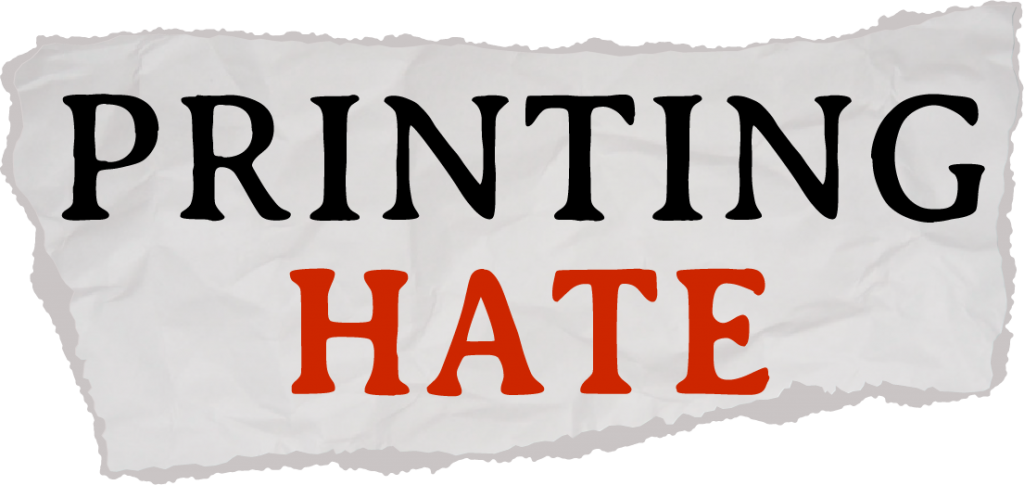By Victoria Ifatusin, Gabrielle Lewis and Jamille Whitlow
PALESTINE, Texas — Every weekend, beginning when she was 14, Constance Hollie-Jawaid would head to the ninth floor of the Dallas Public Library. She’d stay for hours, combing through land deeds, court records and census records. She said she was there so often that people knew her by name.
And after she’d gone home to tell her father what she’d learned, he’d send her back for more. His assignment: Gather information on the 1910 Slocum Massacre and how it harmed their family.
This work is a collaboration of the Howard Center for Investigative Journalism and Capital News Service at the University of Maryland, Morgan State University, Hampton University, Howard University, Morehouse College, North Carolina Agricultural & Technical State University and the University of Arkansas.
Nearly 40 years later, Hollie-Jawaid, 51, is still at work, trying to shed light on the violence white citizens inflicted on their Black neighbors out of rage and jealousy.
She has not always been welcome. Some — including a county commissioner and the head of a county historical commission — have disputed her research and criticized her for dredging up the past. But she said her ancestors motivate her to persevere.
“I cannot turn their voices off, no matter how much I try,” Hollie-Jawaid said. “It’s my assignment, and once you’re given an assignment, you can’t turn it down.”
PRINTING HATE
EXPLORE ALL STORIES
‘The story needs to be told’
Hollie-Jawaid, the daughter of a trucker and a nurse, was born in Palestine, a city in Anderson County, Texas, about 16 miles from Slocum. The family moved to Dallas when she was 4 years old.
As a little girl, Hollie-Jawaid said, she and her younger brother would look out the car window during visits to Slocum as her father pointed out the locations of businesses her great-great-grandfather, Jack Holley, had owned.
Her father, grandfather and uncle, whom she called “the trio,” would often recount family history to her and her brother.
In the 1970s, the trio had begun pushing for the state to recognize the massacre and advocated for a historical marker.
When she began high school, she joined them.
She continued her research while at Texas A&M University, where she got a bachelor’s degree in education and English and a master’s degree in counseling and guidance.
After her father died in 2010, Hollie-Jawaid carried on in his place.
“I’m quite honored to continue the work,” she said. “I feel like I don’t have a choice but to continue it.”
In 2011, the Texas House of Representatives passed a resolution that recognized the massacre. The bill noted the centennial of the Slocum Massacre and acknowledged the deaths, fear and people’s loss of property.
Three years later, E. R. Bills, a Texas author, published a book on the Slocum Massacre, “The 1910 Slocum Massacre: An Act of Genocide in East Texas,” and Hollie-Jawaid found a partner in her mission.
The book details the history and impact of the violence.
“We were of the same mind, then, and I think we still are today,” Bills said.
“The story needs to be told.”
Successes
The two succeeded in getting a historical marker despite resistance from the local historical commission in Anderson County and a county commissioner, and they are working toward their next goal: identifying mass graves and exhuming bodies.
Hollie-Jawaid has other plans, such as making Texas school curriculums less Eurocentric and bringing more media attention to the 1910 massacre.
Bills said she is still a “tireless advocate for all the efforts to tell the story behind the Slocum Massacre.”
Hollie-Jawaid said the anniversary is difficult for her every year — she gets rushes of adrenaline.
“I can’t imagine what my ancestors experienced that day,” Hollie-Jawaid said. “They say messages and experiences are carried via DNA in the form of genetic memory. What happened on that day was traumatic … the descendants are experiencing generational trauma.”
Edward Ramirez, Hollie-Jawaid’s son, said growing up around her work was “very inspiring” and “lights a fire under you seeing how your ancestors, how they were treated.”
“The fight’s not over,” said Imani Ramirez, Hollie-Jawaid’s daughter. “We want a lot more. We want people to know.”

